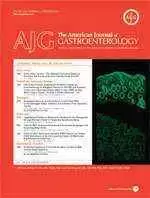
Celiac.com 02/23/2011 - In most adults with celiac disease, clinical symptoms disappear with a gluten-free diet. However, the exact effects of a gluten-free diet on rates of mucosal recovery in adults with celiac disease is less certain.
A group of clinicians recently set out to assess rates of mucosal recovery under a gluten-free diet in adults with celiac disease, and to gauge the clinical prospects of ongoing mucosal damage in celiac patients who follow a gluten-free diet.
Celiac.com Sponsor (A12):
The study group included Alberto Rubio-Tapia, MD; Mussarat W. Rahim, MBBS; Jacalyn A. See, MS, RD, LD; Brian D. Lahr, MS; Tsung-Teh Wu, MD; and Joseph A. Murray, MD.
Each patient in the study had biopsy-proven celiac disease, and was assessed at the Mayo Clinic. Also, each patient received duodenal biopsies at diagnosis. After beginning a gluten-free diet, each patient had at least one follow-up intestinal biopsy to assess mucosal recovery.
The study team focused on mucosal recovery and overall mortality. Of 381 adult patients with biopsy-proven celiac disease, a total of 241 (175 women - 73%) had both a diagnostic and follow-up biopsy available for re-review.
Using the Kaplan–Meier rate of confirmed mucosal recovery to assess these 241 patients, the study group found that 34% of the patients enjoyed mucosal recovery at 2 years after diagnosis (95% with a confidence interval (CI): 27–40 % ), and 66% of patients enjoyed mucosal recovery at 5 years (95% CI: 58–74 % ).
More than 80% of patients showed some clinical response to the gluten-free diet, but clinical response was not a reliable marker of mucosal recovery ( P = 0.7). Serological response was, by far, the best marker for confirmed mucosal recovery ( P = 0.01).
Patients who complied poorly with a gluten-free diet ( P < 0.01), those with severe celiac disease defined by diarrhea and weight loss ( P < 0.001), and those with total villous atrophy at diagnosis ( P < 0.001) had high rates of persistent mucosal damage.
With adjustments for gender and age, patients who experienced confirmed mucosal recovery had lower mortality rates overall (hazard ratio = 0.13, 95 % CI: 0.02 – 1.06, P = 0.06).
One of the most important findings from this study was that a large number of adults with celiac disease have no mucosal recovery, even after treatment with a gluten free diet.
Compared to those patients who suffered persistent damage, patients who experienced confirmed mucosal recovery had lower rates of mortality independent of age and gender.
The group notes that systematic follow-up via intestinal biopsy may be advisable for adults with celiac disease.
Source:
- Open Original Shared Link





Recommended Comments
There are no comments to display.